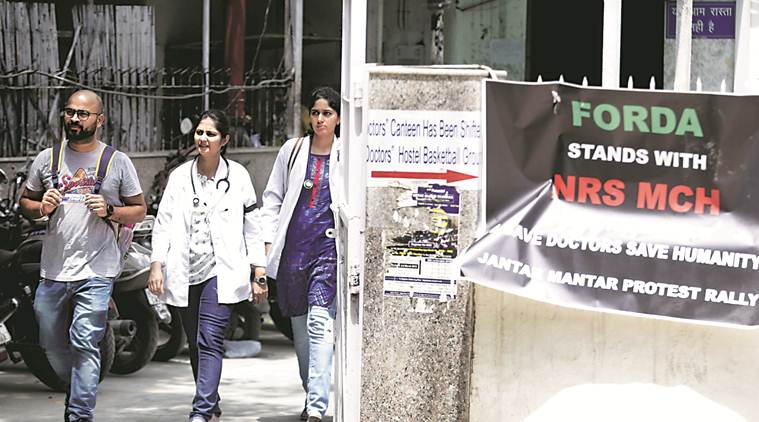
With the Indian Medical Association (IMA) declaring a nation-wide strike on Monday, non-essential services such as out-patient departments and elective surgeries at hospitals, clinics, nursing homes and diagnostic centres will be affected in Delhi.
While doctors at Safdarjung Hospital are supporting the strike and keeping only casualty, labour room and ICU services functional, the AIIMS Resident Doctors’ Association (RDA) is not participating in the strike.
In a statement, the AIIMS RDA said: “It has been decided to resort to a protest wherein patient-care services will not be hampered to ensure that the backlog of patients, including patients affected by the strike, is addressed appropriately.”
Read | Bengal doctors’ strike: Stage set for talks, docs want end to deadlock
The Federation of Resident Doctors’ Association India said in a statement that 10,000 resident doctors from 22 hospitals will remain on strike on Monday. Emergency services, it said, will not be hampered.
The Delhi Medical Association (DMA) also held a meeting on Sunday and decided to support the IMA’s call for a strike. “Emergent Executive Committee Meeting convened today decided to support the call given by the IMA for withdrawal of non-essential services on Monday for 24 hours, starting 6 am… All clinics, nursing homes, diagnostic centres, hospitals are requested to shut down routine services,” said the DMA statement.
Read | Indian Medical Association call: No non-essential services today
Private hospital administrations said they support the protest and if doctors want to strike work, they can do it at an individual level.
Since Friday several doctors in the city, including those at government and private hospitals, have been striking to protest violence against doctors in West Bengal. While some went back to work on Saturday, others remained on strike.
As emergency and casualty services are the only ones functional on Sunday, the effect of the strike was reduced.
On Saturday, around 15,000 resident doctors from AIIMS, Safdarjung, Lok Nayak and GTB hospitals, along with several private hospitals, refrained from attending to patients at the OPD.